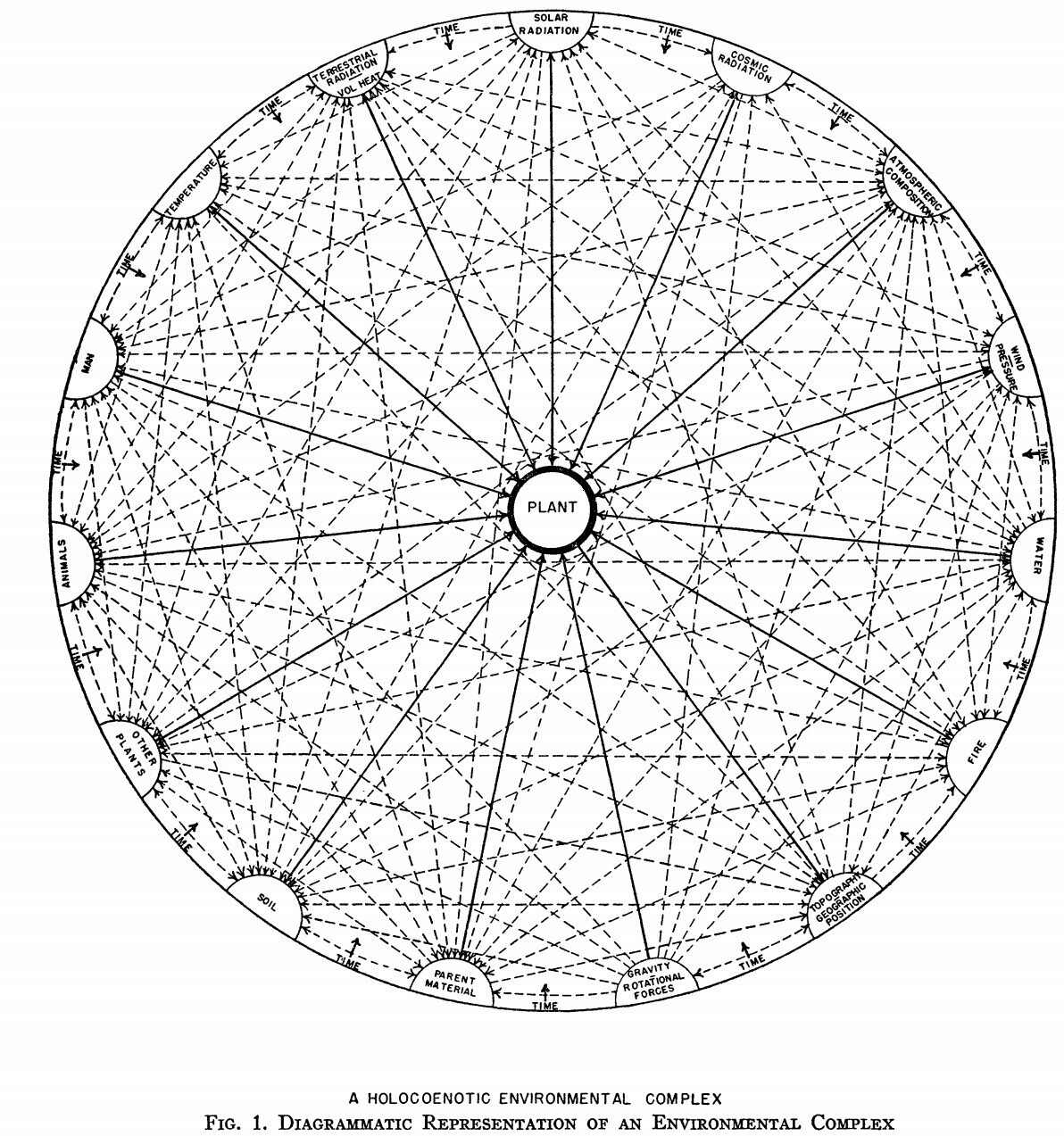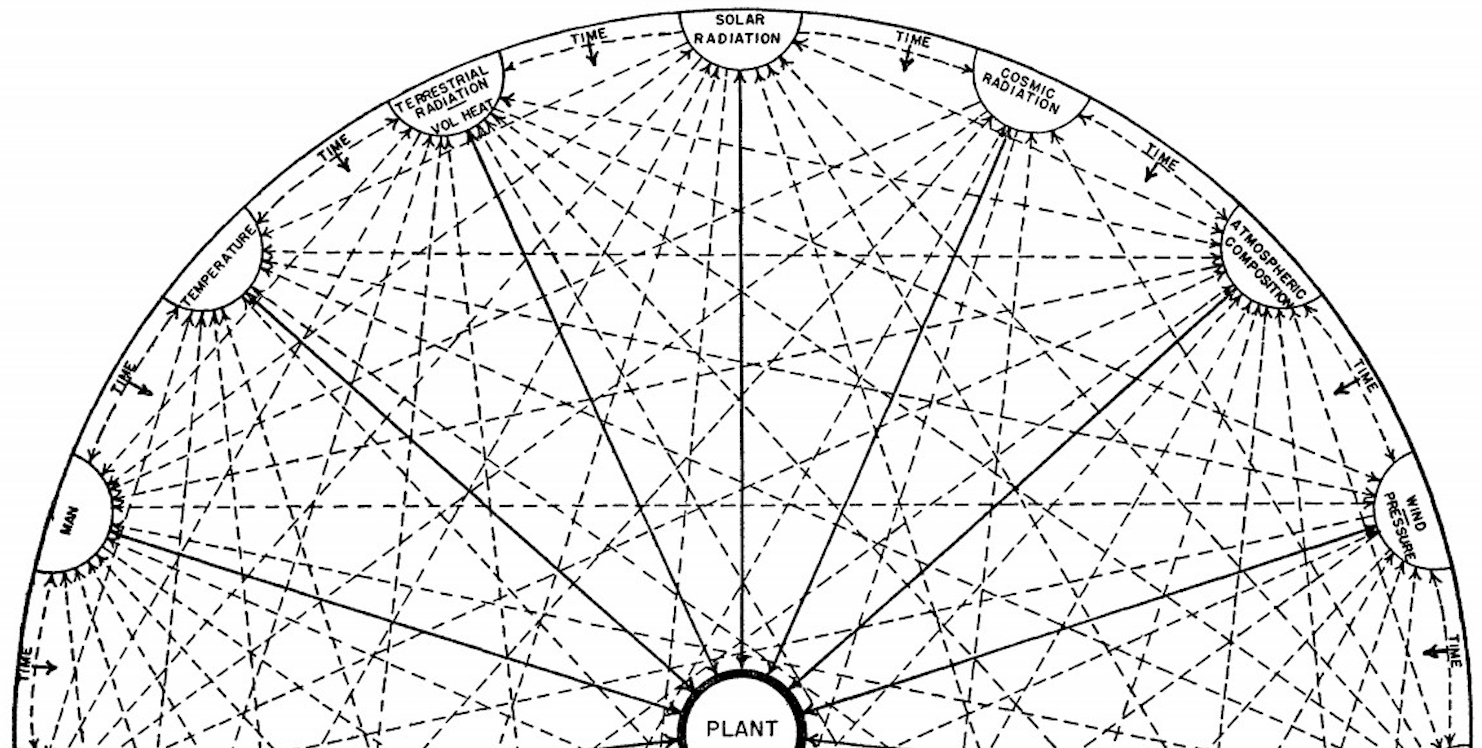
Research
My research combines a PhD in political science with pre- and postdoctoral training in science and technology studies to explore the consequences that the technoscientific developments of the last century pose for contemporary politics. It pays particular attention to how advances in areas such as nuclear technology, planetary ecology, and artificial intelligence research have both given human beings the power to destroy all human life and—just as crucially—transformed the terms in which all earthly life itself is understood. My research presently proceeds along three related tracks:
The Politics of Earth System Science
My first book project, On Loving the Vulnerable World: A Political Theory of Survival Ecology, builds on my doctoral dissertation to guide readers through the closely interwoven histories of nuclear technology, systems ecology, and 20th century political theory. It demonstrates the extent to which the unprecedented prospect of species extinction by massed thermonuclear weapons upset the foundations of Western governance—transforming human existence from an implicit prerequisite for politics into a contingent outcome of politics. At the same time, this research shows how the fallout that first inspired fears of ‘universal death’ also came to serve as the radioisotope tracers that revealed the Earth to be far more complexly interconnected than previously imagined. By tracing this history from the thermonuclear revolution of the 1950s to today’s Anthropocene, my study shows how the Earth System took shape as a novel object of knowledge and target of power. In doing so, it highlights how the advent of the Earth System introduced a new set of resources for reconsidering fundamental features of the Western political tradition such as sovereignty, autonomy, and freedom. The study builds on the ecological innovations of political thinkers Hannah Arendt and Johnathan Schell to develop a non-sovereign approach to politics better suited to a planet where the timeless awareness that ‘everything is interconnected’ reemerges as a political challenge of the first order.
The Promise and Perils of Geoengineering
My second major area of research arose as the result of participating in a workshop on geoengineering (techniques for deliberately altering the climate on a planet-wide scale) at Lawrence Livermore National Laboratory. Conducted during the first year of my postdoctoral fellowship, this line of inquiry contributes to current debates about geoengineering by demonstrating the surprising range of connections that link today’s looming climate interventions to the logic of assured nuclear destruction. Titled The Swords of Damocles, it begins by recounting the remarkable history of the Eisenhower Administration’s 1953 “New Look Policy,” which sought to boost domestic prosperity and win the ‘long haul’ of the Cold War on the cheap by turning to the deterrent power of tens of thousands of thermonuclear weapons (and giving American English the phrase “more bang for the buck” in the bargain). The project then attempts to illustrate how four ensuing decades of learning to enjoy suburbanized consumer satiety at the cost of total nuclear precarity left the American public almost uniquely poorly equipped to address the planetary impacts of this very same lifestyle. Having spent decades learning to ignore the nuclear sword of Damocles overhead, by the late 1980s it proved all too easy to transfer these skills to a new source of existential anxiety and delay action during the years when 2ºC+ of global warming could have been avoided. Ultimately, this project seeks to warn readers that if US leadership now turns to comparatively cheap—but inherently risky—geoengineering strategies to forestall further warming, this will only be the second time in living memory that Americans have placed all human life on Earth in jeopardy for reasons of economic expediency. I recently had the opportunity to present a short synopsis of this work at a conference hosted by the Czech Academy of Science and as the invited closing keynote for an international conference on global catastrophic risk.
UP/Down Politics
My third and most open-ended area of research involves continuing what Hannah Arendt once termed her “reconsideration of the human condition from the vantage points of our newest experiences and our most recent fears.” Developed in consultation with a range of Stanford faculty, this research traces how the legacy of cybernetics impacts emerging political thought. Specifically, it tracks how mid-20th century cyberneticians’ efforts to recast human beings as ‘complex information processing systems’ have gradually split to form two competing camps. On the one side, there arose those who stressed the ‘complex systems’ part of this equation, tracing humankind’s environmental interconnections to yield the systems ecology of the 1960s, the Gaia theory of the 1970s, and the Earth System science of the 1980s. Those who emphasized the ‘information processing’ dimension, by contrast, developed revolutionary new fields such as cognitive science, artificial intelligence, and bioinformatics. Over the last half century, those in the complex systems camp have come to conceive of humans as inherently relational, inextricably ecologically entangled components of planetary life, while those in the information processing camp increasingly approach humans as the incidental hardware for running minds that can be synthesized (and optimized) in silico.
These differing conceptions of humankind carry important political implications, each inspiring their own competing visions of human security and flourishing that do not track neatly onto traditional political distinctions of Left/Right or progressive/conservative. Instead, my research introduces an alternative UP/Down dichotomy to better capture this emerging polarity. As accounts of looming technological transcendence and impending ecological collapse increasingly vie for our attention, the complex systems oriented ‘Down’ wing seeks to ensure survival by more intimately entangling humankind with the rest of earthly life, while an ‘Up’ wing chafes to accelerate information processes to the escape velocities required to slip the surly bonds of Earth and flesh and strike off for the cosmos as purely digital beings. My research shows how both camps have developed their own competing cardinal virtues—the Down wing prizing wisdom as the ability to recognize complex system dynamics and the inherent limits these impose, while the Up wing values intelligence as a form of complex problem solving capable of near-limitless enhancement. As the human habitability of the planet continues to degrade, discussion will turn increasingly towards questions of how best to intervene to stabilize an Earth System in crisis. Wise quietists in the far Down camp will assert that such a task is impossible, while far Up Prometheans will claim it is trivial. As the growing Up/Down divide ushers in a new form of planet-scale politics, a correspondingly new kind of centrist will have to shoulder the task of combining wisdom and intelligence to navigate between extremes and help steer towards a more just, humane, and sustainable existence for all who call Earth home.
